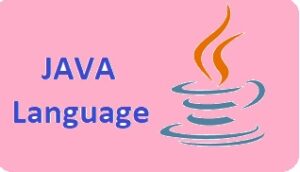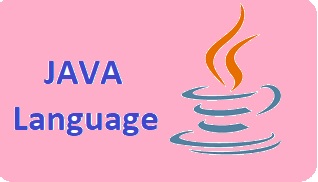 Hello, readers welcome to the new post. In this post, we will discuss JAVA Language. It is high level based at certain class, specific object-directed programming language. It is a general-purpose language and comes with features of run anywhere, and writing a single time it means coding writing in this module can be operated at any platform.
Hello, readers welcome to the new post. In this post, we will discuss JAVA Language. It is high level based at certain class, specific object-directed programming language. It is a general-purpose language and comes with features of run anywhere, and writing a single time it means coding writing in this module can be operated at any platform.
Here we will cover different features in the detail. So let’s get started.
Introduction to Java
By Dave Beazley – (originally published in Intro to Java as an ACM Computing Reviews PDF) This tutorial is based on the Introduction to Java source code available in the repository. This tutorial provides a thorough understanding of how Java works. Tutorial on Java: Java Interpreter Java is a highly strong programming language, and the fact that it is compiled plays a significant role in its capacity.
A language with pre-compiled binaries is significantly simpler to learn than one that is interpreted.
. However, using Java’s interpreter is required to fully realize the capabilities of the Java Language. We’ll show how to execute and debug Java applications without a class loader in this lesson on Java.
Key Features of Java
The usage of standard-type systems in Java is one of the main distinctions between it and other languages.
Accordingly, every Java class is implemented as a class with a few type arguments for the constructor and a few instances of that class.
When all other Java types are satisfied, you can call a method on the provided type. Java also allows you to create objects that have arbitrary or fixed sets of available public methods (not private methods), methods that are protected by Java’s Finalized and Protected keywords, and properties. Here are some of the less technical but very important features: Calls are made by name instead of by reference, so the arguments are directly passed to the method call.
Variables and Data Types in Java
As a general principle in Java, there are two main types of data in the language that are classes and objects. The nature of objects is object-oriented language find by the class that made it.
Every class or instance of a class can have one or more primary features also secondary attributes
An object, also has some limited features
. Statement of the Day: Fix and Refresh The problem you face here is that updating a value of a class property – as with simple, single-argument static assignments – isn’t that simple. Most of the time we’re interested in updating the value that the property, either temporarily or permanently.
Control Statements in Java
It’s a fact that control statements in Java are always written as questions and the answer is always the same. This is because many programmers who write Java code have a tendency to speak to computers as though they were people.
. What are the meanings of this? Many programmers don’t fully understand the concept of programming and they lack the ability to solve problems by fully understanding the problem. It’s a fact that the higher level the language, the more difficult it is to grasp. Oftentimes, new programmers will make mistakes because they don’t understand certain language constructs. Algebra in Java Algebra in Java One way to keep children’s mathematical knowledge alive in their young years is to introduce them to programming.
If-Else Statements in Java
Like other programming languages Java permits differnt methods for express, checking and application of boolean logic
. The following example demonstrates how this reasoning is written in Java using the IF, THEN, ELSE, NEGATIVE, and NOT operators. public class Illustration (String[] args) public static void main var1 = Integer.parseInt(args[0]); System.out.println(“var1: ” + var1); var1 = Integer.parseInt(args[1]); System.out.println(“var1: ” + var1); var1 = Integer.parseInt(args[2]); System.out.println(“var1: ” +
Switch Statements in Java
Looking for some powerful or unique programming features? There are many of them available in the Java language. Learn more about these basic or advanced features of Java using some simple examples. These examples show the usage of switch-statement and match statements in Java. 1-2-3, Find an Animal!
Loops in Java
A loop is the usual way of storing multiple values, and we will need to find a loop to do this loop on our servers. A simple loop In the above loop, a variable value is accessed over and over. The simplest technique to make a loop is in this fashion.
However, Java does not allow us to repeat this loop (at least not without recompiling).
. To get a better loop, we can create an iterator, or iterator chain. Try the following to see an example of an iterator chain: You may receive the subsequent part of the series by entering the numbers 0 through 3.
. Array Operations in Java Recall the table from above, which contains the possible array operations in Java. These are the basic actions that can be performed on arrays.
Classes and Objects in Java
Classes and objects in Java are both objects that are managed and encapsulated within a common entity. This makes it possible to guarantee that classes behave consistently across all programming languages.
Classes in Java are written using a syntax like that of C or C++.
. Classes extend each other, which lets them override the methods of each other. Objects in Java are the class’s sub-systems that can interact with each other.
Defining a Class in Java
Welcome to the Java tutorial. You’ve come to our website to learn Java..
Programs developed in Java may be run straight from the keyboard since it is an interpreted language.
It is a general-purpose, compiled, and object-oriented, programming language.
Its main objective is to offer a straightforward and reliable programming environment that supports a variety of application development.
Defining an Object Instance Using Class Name
The class Foo will be defined here using the class constructor Foo(Class), which is used to instantiate the class Foo in the manner described below: public class Foo; package Foo public Foo(String name); private final String name this.name equals name; this.clazz = clazz; public Foo(Class clazz); super(); getName() for public strings returns name;




